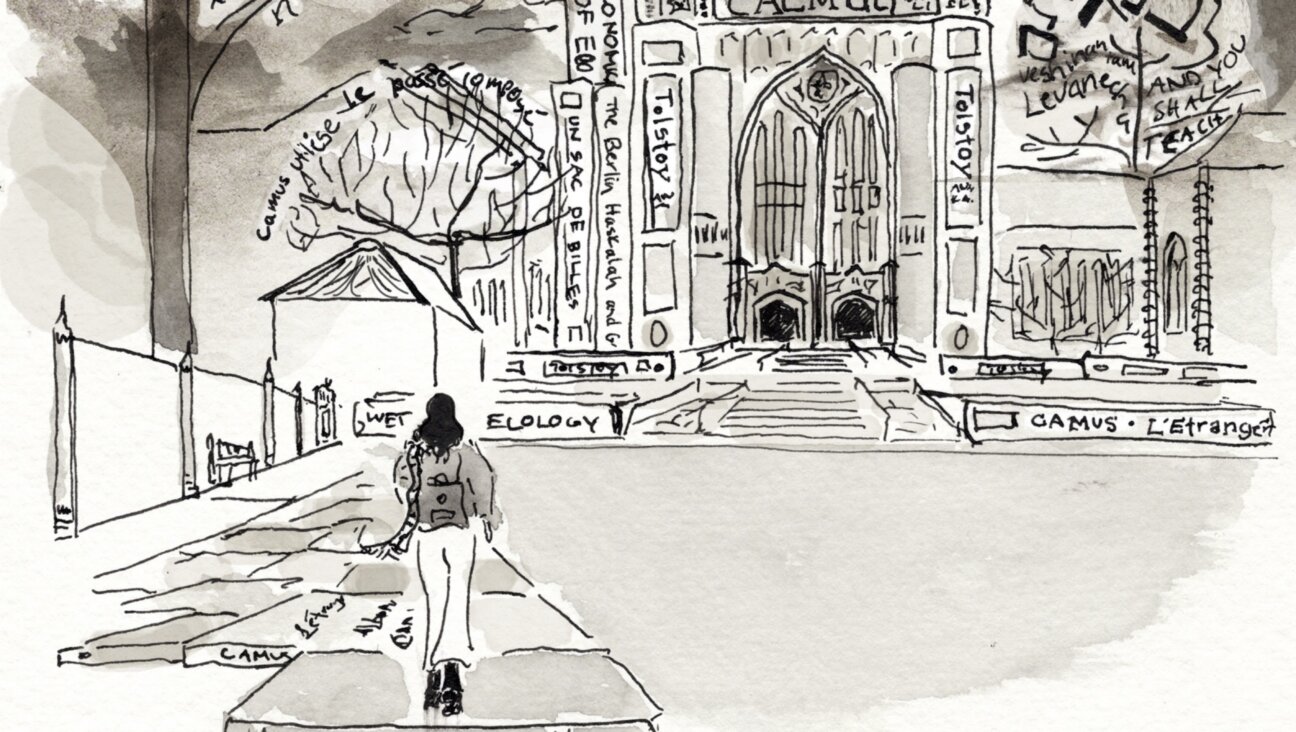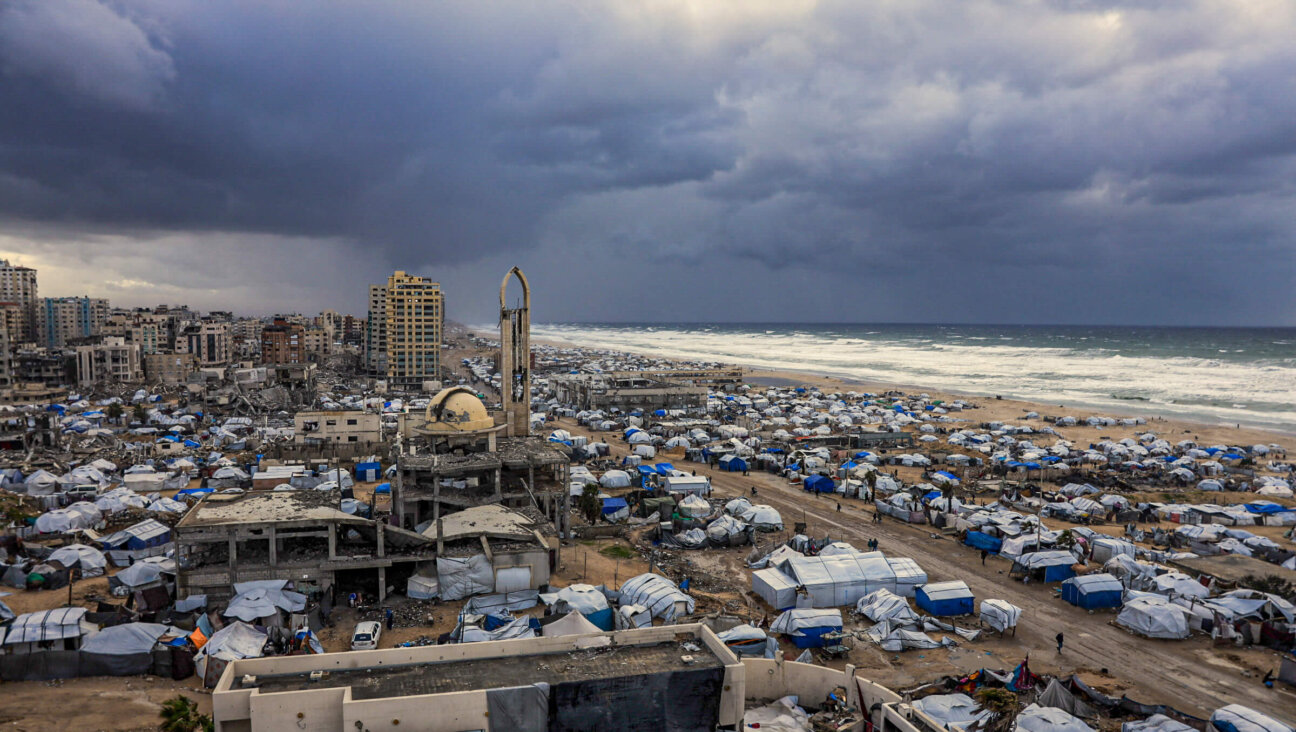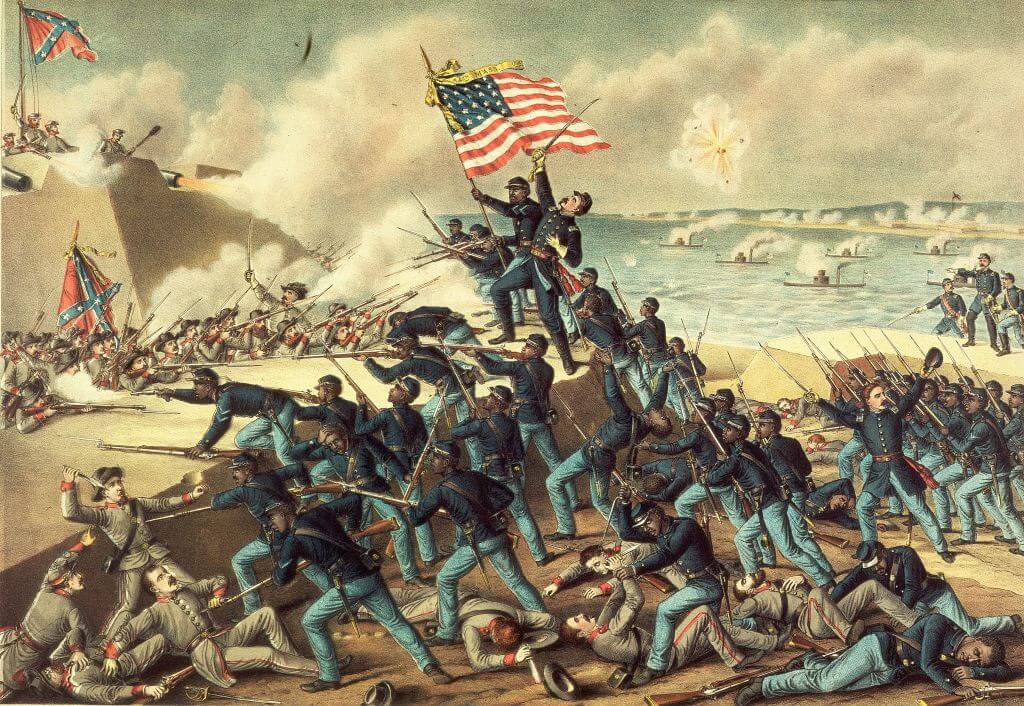Drawing a Line in the Bay
The Jewish Community Federation in San Francisco is stepping bravely into the fraught debate over the limits of public discourse about Israel. By issuing detailed guidelines for the kinds of Israel-related programming it will fund — and not fund — the JCF is searching for a balance between supporting full and free expression and adherence to what it deems are the core values of its diverse, sometimes raucous Bay Area Jewish community.
It’s a high-wire act on a big public stage, and it may not work, for reasons that we’ll explain below. But the federation deserves credit for dealing directly and openly with an issue that too many other communities would rather suppress or ignore.
The impetus for these new guidelines was an unhappy scene at last year’s San Francisco Jewish Film Festival, before, during and after the screening of a provocative film about the pro-Palestinian activist Rachel Corrie, killed by an Israeli bulldozer in Gaza. The ensuing uproar — not over the film itself as much as the appearance by Corrie’s mother and the event’s co-sponsorship by Jewish Voice for Peace, a group harshly critical of Israel — pierced a boil in a Jewish community where staunch supporters of the Israeli government and promoters of the anti-Israel boycott, divest and sanctions, or BDS, movement uneasily reside. Since the Film Festival is partly funded by the JCF, the anger flowed in that direction.
So federation leaders decided to bring together a wide array of Jews to create guidelines for grantees contemplating Israel-related programming. The resulting document opens by stating the JCF’s “core values”: an abiding commitment to a secure Jewish community; to a strong, democratic Jewish Israel; and to mutual respect and diversity within Jewish life. An organization seeking funding for Israel-related programming needs to prove a similar commitment to that mission to receive support.
Put another way, the guidelines also state what kinds of organizations won’t get funded: those that endorse or promote antisemitism or other forms of bigotry; actively seek to proselytize Jews away from Judaism; or advocate or endorse undermining the legitimacy of Israel as a secure, independent, democratic Jewish state.
Clearly, it’s the last phrase that could be problematic. While the JCF document calls out the BDS movement by name — a specific, identifiable activity — it also leaves open the definition of what it means to undermine the legitimacy of Israel. Who gets to decide? The legitimacy of the state as Jewish? Democratic? Within certain boundaries? On behalf of certain people?
The wisdom of this policy will hinge on how this phrase is defined in practice. The JCF document takes great pains to say, again and again, that it welcomes diverse viewpoints, that it supports free speech and constructive debate. And there is a valid argument to be made that, in the absence of such guidelines, grantees may not know how far to push the boundaries and therefore may gravitate toward the safe middle. But it’s also possible that the guidelines will have the opposite, chilling effect that critics fear, leading artists to restrict their creativity and thought leaders to police their own statements.
While all funders have a right to shape the use of their money, Jewish federations are more than just a communal philanthropy. Wherever they are located, federations want to be considered the central address for the Jews in their respective communities. Telling a potential grantee that his or her work violates the guidelines does more than withhold resources; it withholds an imprimatur, saying in effect that the work is outside the boundaries of Jewish acceptability. That it’s treyf.
This is a heavy responsibility for the JCF to assume, and the proof of whether doing so will enhance civility without curtailing creativity will only be evident as funding decisions occur. But that is why the JCF is to be commended. It has diligently tried to make sense of the deep emotions surrounding the State of Israel in the context of Americans’ commitment to debate and dissent. Bay Area residents will soon learn how big and open Abraham’s tent truly is.
















